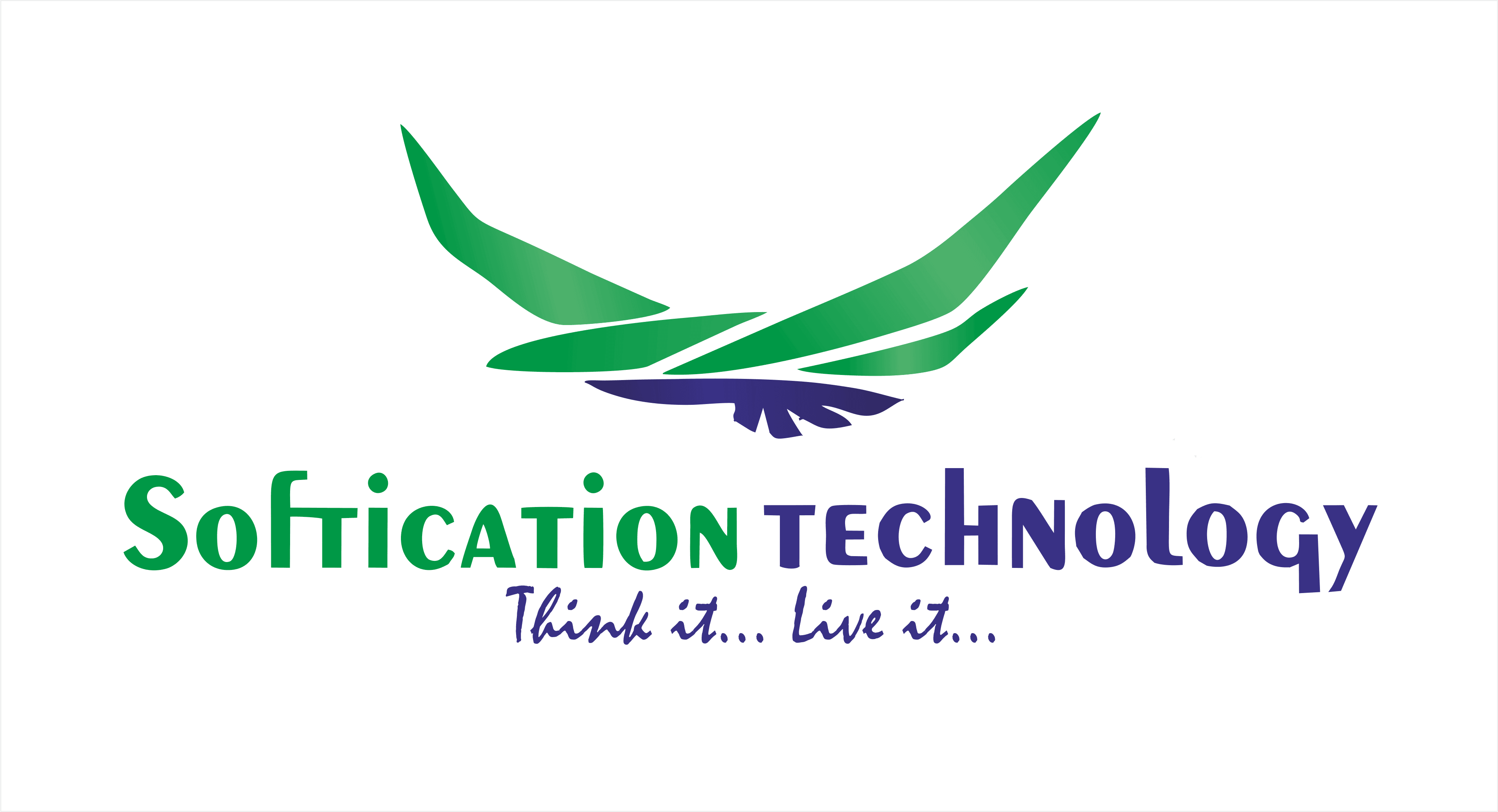Introduction to Website Migration
When it comes to establishing or revamping an online presence, website migration plays a crucial role. Understanding what website migration is and recognizing its importance can help businesses make informed decisions to ensure a seamless transition.
What is Website Migration?
Website migration refers to the process of transferring a website from one location to another, whether it's moving to a new domain, changing the URL structure, or switching to a different web hosting provider. It involves moving all website files, databases, and configurations to the new environment while maintaining the website's functionality, design, and SEO elements.
Website migration can be a complex undertaking that requires careful planning, technical expertise, and precise execution. It is essential to consider various factors such as content, design, SEO, and user experience to ensure a successful migration.
Importance of Website Migration
Website migration is a strategic decision that can significantly impact a business's online presence. There are several reasons why businesses opt for website migration:
- Rebranding and Redesign: A website migration provides an opportunity to revamp the design, improve user experience, and align the website with the brand's new identity or objectives. It allows businesses to stay current and relevant in a rapidly evolving digital landscape.
- Improved Performance and Functionality: Migrating to a new platform or web hosting provider can enhance website performance, speed, and security. It enables businesses to leverage the latest technologies and features for a better user experience.
- SEO Optimization: Website migration offers a chance to optimize the website's structure, meta tags, and content for improved search engine visibility. By implementing SEO best practices during the migration process, businesses can enhance their organic search rankings and attract more qualified traffic.
- Consolidation and Scalability: As businesses grow and expand, they may need to consolidate multiple websites or migrate to a more scalable platform. Website migration facilitates streamlining operations, reducing costs, and accommodating future growth.
By understanding the significance of website migration, businesses can make informed decisions and enlist the help of a reliable website migration agency in India to ensure a smooth and successful transition. Proper planning, technical expertise, and ongoing support are crucial for a seamless migration process that minimizes risks and maximizes the benefits of the transition.
Planning for a Successful Website Migration
Before embarking on a website migration, proper planning is essential to ensure a smooth and successful transition. This section will cover three important aspects of planning for a website migration: conducting a content audit, setting clear objectives, and establishing performance benchmarks.
Conducting a Content Audit
Before migrating a website, it is advisable to conduct a content audit to assess the existing content, remove outdated or irrelevant content, and identify any gaps that need to be filled (Softication Technology). A content audit involves reviewing all the pages, posts, images, and other content elements on the website. It helps to determine what content should be migrated, what can be improved, and what can be removed.
During the content audit, it's important to consider factors such as the relevance, accuracy, and quality of the content. This process helps to ensure that the migrated website contains valuable and up-to-date information that aligns with the goals of the migration. By conducting a thorough content audit, you can streamline the migration process and provide a better user experience for your audience.
Setting Clear Objectives
Setting clear and specific objectives is crucial for a successful website migration. Before initiating the migration process, it is important to define what you aim to achieve through the migration. This could include goals such as improving website performance, enhancing user experience, increasing organic traffic, or expanding the website's functionality.
Clear objectives help to guide the migration process and ensure that all actions taken align with the desired outcomes (Softication Technology). They also provide a benchmark for evaluating the success of the migration once it is completed. By establishing clear objectives from the outset, you can keep the migration on track and measure its effectiveness.
Technical Aspects of Website Migration
When undergoing a website migration, several technical aspects need to be carefully considered and implemented to ensure a smooth transition. In this section, we will explore three key technical aspects of website migration: implementing 301 redirects, testing and troubleshooting, and analyzing post-migration performance.
Implementing 301 Redirects
Before migrating a website, it is crucial to establish 301 redirects to preserve the SEO value of the old website and ensure that inbound links, SEO efforts, and user bookmarks are not lost. A 301 redirect is a permanent redirect that informs search engines and visitors that the old URL has been permanently moved to a new location. By implementing 301 redirects, you can maintain the link equity and rankings of the old website, ensuring a smooth transition for both users and search engines.
During the website migration process, the agency should carefully map the old URLs to the corresponding new URLs and set up the necessary redirects. This involves configuring server-side redirects or utilizing plugins or modules in content management systems (CMS) to automate the process. It is critical to ensure that all important pages and URLs are redirected properly to their new counterparts to avoid broken links and loss of traffic.
Testing and Troubleshooting
A thorough testing phase is essential to identify and address any issues with the new website before it goes live. This ensures a seamless user experience and minimizes the risk of potential problems affecting the website's performance and functionality. The agency should create staging environments to run tests on the new website, allowing for comprehensive testing without impacting the live site.
During the testing phase, the agency should pay close attention to various aspects, such as website functionality, page speed, mobile responsiveness, cross-browser compatibility, and form submissions. By thoroughly testing the new website, the agency can identify any bugs or issues and address them promptly, ensuring that the website is fully optimized and ready for launch.
Analyzing Post-Migration Performance
After the website migration is complete, it is crucial to analyze the post-migration performance to evaluate the success of the migration and make any necessary adjustments. This involves monitoring traffic, conversions, and SEO performance metrics to gauge how the new website is performing compared to the old one.
The agency should utilize analytics tools to track website traffic, user behavior, and conversion rates. By analyzing these metrics, the agency can identify any potential issues and take corrective measures to optimize the website's performance. It is important to closely monitor the website's rankings in search engine results pages (SERPs), organic traffic, and key performance indicators (KPIs) to ensure that the migration has not negatively impacted the website's visibility and overall performance.
By implementing 301 redirects, conducting thorough testing and troubleshooting, and analyzing post-migration performance, the website migration agency can ensure a successful transition to the new website. These technical aspects are crucial for maintaining SEO value, resolving any issues, and optimizing the website's performance for a seamless user experience.
Benefits of Hiring a Website Migration Agency in India
When it comes to website migration, hiring a reputable and experienced website migration agency in India can offer numerous benefits. From reducing risks and traffic loss to providing technical expertise and ongoing support, these agencies play a crucial role in ensuring a smooth and successful website migration process.
Reducing Risks and Traffic Loss
Website migration carries inherent risks, such as potential traffic loss and negative impact on search engine rankings. However, by partnering with a website migration agency in India, you can minimize these risks. These agencies have the expertise and experience to handle the complexities of migration, ensuring that all URLs are redirected correctly and the new site is indexed promptly by search engines. This helps to maintain your website's visibility and prevent significant traffic loss.
To mitigate risks further, these agencies conduct robust testing before the new site goes live. By identifying and addressing any issues during the testing phase, they ensure a seamless user experience and minimize the chances of potential traffic loss. Clear communication between the website owner and the migration agency is also vital throughout the process to address concerns and challenges promptly.
Technical Expertise for Smooth Migration
Website migration involves various technical aspects that require specialized knowledge. A website migration agency in India possesses the technical expertise needed to handle the migration process smoothly. They understand the intricacies of implementing 301 redirects, transferring data securely, and ensuring compatibility across different platforms and devices.
These agencies also have a deep understanding of search engine optimization (SEO) principles, which is vital during the migration process. They can help optimize page titles, meta descriptions, and other elements to ensure that your website maintains or improves its search engine rankings. Additionally, they have the necessary tools and resources to analyze post-migration performance and make any necessary adjustments to enhance the site's visibility and user experience.
Ongoing Support and Monitoring
Website migration is not a one-time event; it requires ongoing support and monitoring. A website migration agency in India provides continuous support to ensure a smooth transition and optimal site performance. They are available to address any unexpected issues that may arise after the migration, such as broken links or compatibility issues.
These agencies offer monitoring services to track the performance of the new site and promptly address any emerging issues. Regular monitoring helps identify potential problems early on, allowing for timely resolution and ensuring that your website continues to operate seamlessly. By hiring a website migration agency in India, you gain access to their expertise, resources, and ongoing support. They take the burden off your shoulders, allowing you to focus on your core business while ensuring a successful website migration.
Website Migration Services in India
When it comes to website migration, it is often beneficial to seek the assistance of professionals who specialize in this field. In India, Softication Technology is the agency and web development services provider that offers comprehensive website migration services. Let's explore some of the key services available in India for a smooth and successful website migration.
Risks and Costs of Website Migration
Website migration is a complex process that involves potential risks and costs. It is important to be aware of these factors before embarking on a website migration journey.
Data Security and Breach Risks
Data breaches can have severe consequences for businesses, both financially and in terms of reputation. In 2019, data breaches cost US companies an average of $8.19 million, highlighting the importance of robust data security measures during website migration. When migrating a website, there is a risk of data loss or unauthorized access if proper security protocols are not followed. Therefore, it is crucial to choose a reliable website migration agency in India or elsewhere that prioritizes data security.
Potential Traffic Loss and Costs
Website migration can potentially lead to a temporary loss of organic traffic and rankings if not managed properly. This can result in a decline in website visibility and potential revenue. It is important to involve an experienced website migration agency in India to minimize the risk of traffic loss (SEMrush). In 2019, the average website migration project cost between $3,000 to $20,000, depending on the complexity of the migration. These costs can vary significantly based on the size of the website and the scope of the migration. It is essential to consider these potential costs when planning for a website migration.
Importance of Expert Guidance
Given the risks and costs associated with website migration, seeking expert guidance from a reputable website migration agency is crucial. A professional agency will have the technical knowledge and experience to handle the complexities of the migration process. They can help mitigate risks, ensure data security, and minimize potential traffic loss. Collaborating with a website migration agency in India or elsewhere can provide businesses with the expertise needed for a smooth and successful migration.
By understanding the risks involved, businesses can take proactive steps to mitigate them. Choosing a reliable website migration agency in India, or any other location, helps ensure a secure and seamless transition, minimizing the potential impact on data security, traffic, and overall costs.
Best Practices for Website Migration
During a website migration, implementing best practices is essential to ensure a smooth transition and minimize any negative impact on your website's performance and user experience. In this section, we will explore three key best practices for a successful website migration: transferring quality content, proper implementation of redirects, and optimizing page titles and meta descriptions.
Transferring Quality Content
When migrating a website, it is crucial to transfer quality content from the old website to the new one. This ensures that your website maintains its authority, online presence, and search engine rankings. Failing to transfer content properly can result in an immediate drop in traffic and leads, impacting your business significantly.
To transfer content effectively, start by conducting a thorough content audit to identify the most valuable and relevant content on your current website. Prioritize transferring high-performing pages, blog posts, and other valuable assets to the new website. Make sure to maintain the same URL structure whenever possible to preserve any existing backlinks and internal links.
Additionally, consider improving and optimizing your content during the migration process. Update outdated information, enhance readability, and ensure that the transferred content aligns with the new website's design and branding. By transferring quality content, you can maintain your website's online presence and provide value to your visitors.
Proper Implementation of Redirects
During a website migration, proper implementation of redirects is crucial to avoid major traffic loss and maintain a positive user experience. Redirects ensure that visitors who access your old URLs are automatically redirected to the corresponding new URLs on the updated website.
Failure to implement redirects correctly can result in broken links and a decline in sessions. Make sure to redirect each old URL to its new counterpart or the most relevant page on the new website. This helps preserve your website's search engine rankings and ensures that visitors can still access the content they are looking for.
To effectively implement redirects, it is recommended to use 301 redirects. This type of redirect informs search engines that the page has permanently moved to a new location. It also transfers the majority of the old page's SEO value to the new page. Implementing redirects properly helps maintain the integrity of your website's structure and improves user experience during and after the migration.
Optimizing Page Titles and Meta Descriptions
Page titles and meta descriptions play a crucial role in informing search engines and users about the content of a page. During a website migration, it is essential to transfer and optimize these elements correctly to ensure that your pages continue to rank well and provide relevant information to users.
Review each page's title and meta description during the migration process. Make sure they accurately reflect the content and purpose of the page. Optimize them by incorporating relevant keywords, making them compelling and informative, and adhering to the recommended character limits.
By optimizing page titles and meta descriptions, you can improve your website's visibility in search engine results pages (SERPs), attract more organic traffic, and enhance the user experience by providing clear and concise information about your web pages.
Implementing these best practices during your website migration helps ensure a successful transition, minimal disruptions, and continued online visibility. By transferring quality content, properly implementing redirects, and optimizing page titles and meta descriptions, you can maintain your website's performance, search engine rankings, and user satisfaction.
Benefits of Hiring a Website Migration Agency in India
When it comes to website migration, partnering with a reputable website migration agency in India can bring numerous benefits and ensure a smooth transition for your online presence. Here are some key advantages of hiring a professional agency for your website migration needs:
Reducing Risks and Traffic Loss
Website migration can be a complex process with several potential risks, including the loss of traffic and search engine rankings. By working with an experienced website migration agency in India, you can minimize these risks and ensure a seamless transition.
A reliable agency will have in-depth knowledge of best practices and a proven track record in handling website migrations. They will meticulously plan and execute the migration, ensuring that all URLs are redirected correctly (SEMrush). This helps to preserve inbound links, maintain SEO efforts, and prevent any disruption to user bookmarks or existing traffic.
Technical Expertise for Smooth Migration
Website migration involves various technical aspects, such as implementing 301 redirects, transferring databases, and ensuring the proper functioning of the new website. A professional website migration agency in India will have the necessary technical expertise to handle these tasks efficiently.
The agency will work closely with you to understand your specific requirements and goals. They will conduct thorough testing and troubleshooting to identify and address any issues before the new site goes live (SEMrush). Their technical proficiency will ensure a seamless migration process, minimizing any potential disruptions to your website's functionality.
Ongoing Support and Monitoring
A reputable website migration agency in India understands that the migration process doesn't end once the new site is live. They provide ongoing support and monitoring to ensure that everything runs smoothly post-migration.
The agency will analyze post-migration performance, tracking various metrics such as traffic, conversions, and SEO rankings (Softication Technology). This allows them to identify any areas for improvement and make necessary adjustments to optimize your website's performance.
Their support doesn't stop at the technical aspects. The agency will also provide assistance and guidance to your team, helping them navigate the new website and addressing any concerns or queries that may arise. Their expertise and support will contribute to the long-term success of your website migration.
By hiring a website migration agency in India, you can reap the benefits of their experience, technical proficiency, and ongoing support. They will guide you through every step of the migration process, reducing risks, ensuring a smooth transition, and setting your website up for success in its new environment











